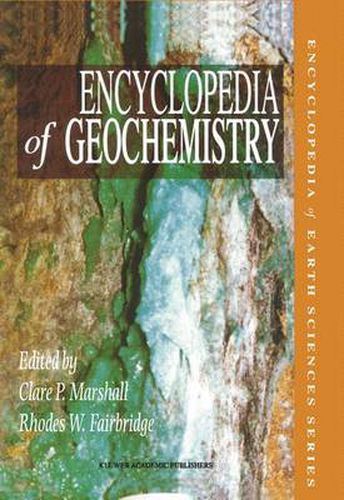Readings Newsletter
Become a Readings Member to make your shopping experience even easier.
Sign in or sign up for free!
You’re not far away from qualifying for FREE standard shipping within Australia
You’ve qualified for FREE standard shipping within Australia
The cart is loading…






Geochemistry uses the methods and philosophies of chemistry to explore and understand the Earth from the most elementary levels. The field has moved on from a prehistoric interest in metals, chert and clay, to become a modern science, utilizing sophisticated techniques to understand the Earth’s processes and evolution. By looking deeply into the Earth’s constituents, scientists are able to verify theories on its formation and, by corollary, on the formation of other planets in the universe. Because geochemistry involves intensive, detailed examinations of pieces of the planet, the subject touches upon many aspects of other scientific explorations, such as predicting earth tremors and volcanoes, the origin of life, environmental contamination and waste management, and finding mineral and organic ores. Over 200 international scientists, each experts in their specialties, have written over 340 separate topics on different aspects of geochemistry including organics, trace elements, isotopes, high and low temperature geochemistry and ore deposits, to name just a few. The instruments used to refine geochemical techniques are each described, and the chemical elements have their own separate entries which include common mineralogical, petrological and sedimentological depictions. Each topic incorporates cross-referencing to related articles, and also has its own reference list to lead the reader to articles within the published literature. The entries are arranged alphabetically, for easy access.
$9.00 standard shipping within Australia
FREE standard shipping within Australia for orders over $100.00
Express & International shipping calculated at checkout
Geochemistry uses the methods and philosophies of chemistry to explore and understand the Earth from the most elementary levels. The field has moved on from a prehistoric interest in metals, chert and clay, to become a modern science, utilizing sophisticated techniques to understand the Earth’s processes and evolution. By looking deeply into the Earth’s constituents, scientists are able to verify theories on its formation and, by corollary, on the formation of other planets in the universe. Because geochemistry involves intensive, detailed examinations of pieces of the planet, the subject touches upon many aspects of other scientific explorations, such as predicting earth tremors and volcanoes, the origin of life, environmental contamination and waste management, and finding mineral and organic ores. Over 200 international scientists, each experts in their specialties, have written over 340 separate topics on different aspects of geochemistry including organics, trace elements, isotopes, high and low temperature geochemistry and ore deposits, to name just a few. The instruments used to refine geochemical techniques are each described, and the chemical elements have their own separate entries which include common mineralogical, petrological and sedimentological depictions. Each topic incorporates cross-referencing to related articles, and also has its own reference list to lead the reader to articles within the published literature. The entries are arranged alphabetically, for easy access.